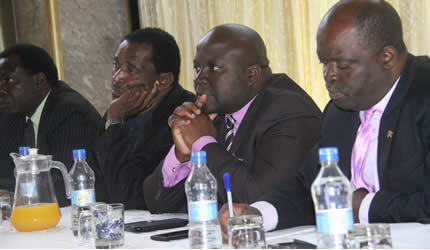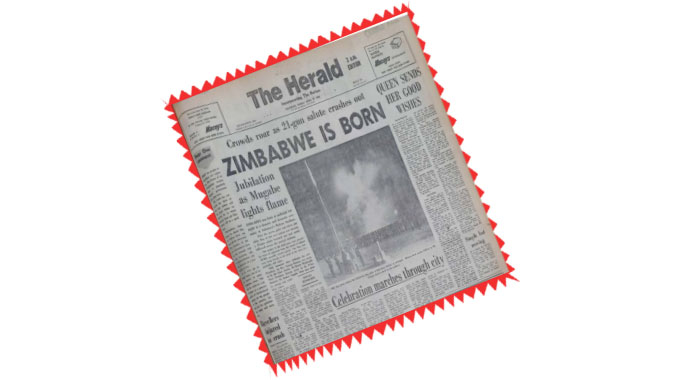Xenophobia: Ambassador calls for calm
the torching of tuck-shops owned by Zimbabweans in Limpopo province.
The incidents have been attributed to a resurgence of xenophobic attacks targeting mainly fellow Africans that claimed at least 62 lives, including some Zimbabweans, in 2008.
The two Zimbabweans were shot dead in Johannesburg’s Diepsloot informal settlement by a Somali businessman who accused them of attempting to rob him.
The shooting angered residents, who turned their attention towards foreign shop owners in the area and threatened to burn down their shops after looting at least 19 of them.
The attacks started last week with the looting and burning down of five tuck-shops belonging to Zimbabweans by a mob of natives in Liphalale town, Limpopo province. Zimbabwe’s consular-general to South Africa Mr Godfrey Magwenzi said in an interview yesterday that the situation was now calm in the two areas and there was no reason for people to panic.
“We have engaged the police and that has been very helpful,” he said.
“Their reaction and control of the situation in Liphalale is commendable. We believe the situation stays calm for good. In case of the Diepsloot incident, we have been monitoring the unfolding events closely. From what we have been getting at the moment, it appears those attacks are targeted at Somali and Pakistan nationals.
“Zimbabweans should not panic as we will continue monitoring the situation.” But the attacks have raised fears of the chaotic situation that occurred in 2008 as South Africans targeted foreigners whom they accused of stealing their jobs. Zimbabweans living in Liphalale town said they were on high alert after numerous attempts were made on their properties and lives by South Africans in recent times.
The South African police have been forced to deploy heavily to the area to quell the imminent xenophobia-motivated attacks, which have been looming since April 16. A number of Zimbabweans living in the area were attacked on April 16, May 9, May 13 and May 16 amid reports that the South Africans were planning another onslaught against foreign nationals, especially Zimbabweans. The potentially volatile situation in Liphalale has resulted in the Zimbabweans living in that area forming a committee to look into how they can live in peace.
The committee’s organising secretary, Mr Jefta Mararike, said in a telephone interview that the situation in Liphalale was now calm after they enlisted the services of the police and the local business community.
“The situation here was turning nasty, where we had five tuck-shops which were burnt down by a mob of South Africans,” he said. “They accused us of taking their jobs, business opportunities and fuelling crime.
“In light of this development, we then organised ourselves as Zimbabweans. We came up with a committee to represent our interests and engaged the police and our consulate here to assist us.”
Mr Mararike said the police were patrolling the area and had assured them that the attacks would not recur.
Xinhua news agency quoted Diepsloot ward councillor Abraham Mabuke as saying he was shocked by the killing of the two Zimbabweans and pleaded with the community to remain calm.
Although no large-scale xenophobia attacks have been reported since 2008, thanks to various initiatives designed to detect early warning signs of future attacks and to improve responses, sporadic violence is not uncommon in informal settlements.
On average, one person was killed in xenophobia violence every week in 2011, according to the Consortium for Refugees and Migrants in South Africa.






Comments